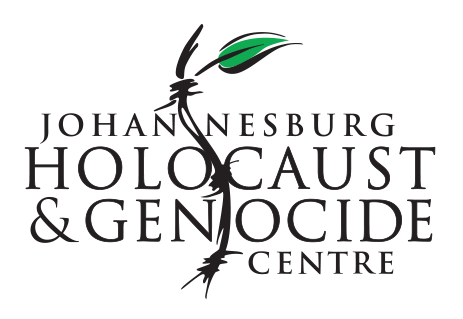“The Holocaust as an Interdisciplinary Tapestry” is an 8-part series that will engage with scholars and experts who grapple with themes related to Holocaust studies. The series will explore the multifaceted discipline of Holocaust Studies through different lenses. Our experts will challenge us to understand the causes, impacts, and legacies of the Holocaust.
Eli M. Rosenbaum, will be talking about some of his experiences prosecuting Nazis in the US. He will explore some of the challenges with which the US Department of Justice has had to deal, such as finding documents, witnesses, and more; years and decades after the crimes were committed, in another country and continent.
Eli M. Rosenbaum is the longest serving investigator and prosecutor of Nazi war criminals and other human rights violators in world history. Since 2010, he has served as Director of Human Rights Enforcement Strategy and Policy in the U.S. Department of Justice Criminal Division’s Human Rights and Special Prosecutions Section (HRSP).
In June 2022, he was appointed by Attorney General Merrick Garland to serve concurrently as Counselor for War Crimes Accountability, tasked with coordinating efforts across the Justice Department and with other federal agencies and authorities abroad to hold accountable persons responsible for war crimes and other atrocities committed in Ukraine in the wake of Russia’s unprovoked invasion. Those efforts are spearheaded by DOJ’s newly created War Crimes Accountability Team, which he heads and which draws on the extensive expertise of HRSP staff, supplemented by contributions of professionals in other Justice Department components. A veteran 37-year Justice Department prosecutor, Rosenbaum served initially as a trial attorney in the Criminal Division’s Office of Special Investigations (OSI), eventually serving as OSI’s Director from 1995 to 2010, when OSI was merged into the newly created HRSP. OSI was responsible for identifying, investigating, and taking legal action against perpetrators of World War II-era Nazi crimes of persecution, and its mission was later expanded to include persons complicit in human rights crimes committed in post-WWII conflicts. He is a graduate of the Wharton School of the University of Pennsylvania, where he earned undergraduate and MBA degrees, and Harvard Law School. He has received numerous awards for his work, including the Attorney General’s Distinguished Service Award and the “Heroes in Blue” award of the Anti-Defamation League.
Dr. Tamir Hod will explore the Israel Police Unit for the Investigation of Nazi Crimes – Holocaust Survivors’ Legal Retribution. In 1958, the Central Office of Judicial Administration for the investigation of Nazi crimes was established in Germany. Documenting the actions of Nazi criminals in preparation for their trial brought the bureau’s representatives to contact the Israeli Police in order to help them gather evidence from Holocaust survivors residing in the country. Consequently, a police unit was needed to deal with the increasing number of inquiries from Germany. For that purpose, the unit for the investigation of Nazi crimes was established in the Israeli Police. Two years later, Adolf Eichmann was captured and brought to Israel. This event deeply affected the sentiments of Israeli society toward the Holocaust. One of the impacts was Holocaust survivors who contacted the unit requesting to provide their testimonies.
Many of the appeals included names of Nazi criminals who could potentially be located and prosecuted. The special police unit comprised almost completely of Holocaust survivors. The survivors played an important role in collecting and documenting the historical records available to us today. Many of the unit members had lost their families in the Holocaust. It may be conjectured that they sought vengeance upon those who committed the crimes. Nonetheless, if indeed they had such feelings, they were translated into long hours of detailed legal work that would lead to proper legal procedures through which it would be possible to bring the perpetrators to justice.
Dr. Tamir Hod is a historian in the field of World War II and the Holocaust, as well as the impact of Holocaust remembrance on Israeli society. The topic of his doctoral thesis was the Demjanjuk trial case in Israel, under the guidance of Prof. Hanna Yablonka. Dr. Hod researched the role the Ukrainian collaborators played in the Treblinka extermination camp. These days, Tamir is working on a book about the Nazi Crimes Investigations Unit in the Israeli Police. The unit, which was founded in 1960, was mainly composed of Holocaust survivors and contributed greatly to various trials in different places around the world against Nazi criminals and their collaborators. Dr. Tamir Hod teaches at Tel Hai Academic College and Western Galilee Academic College.
This programme is in partnership with Classrooms Without Borders, Johannesburg Holocaust & Genocide Centre, the Ghetto Fighters’ House, Generations of the Shoah, and Liberation75.
Click here to register.

